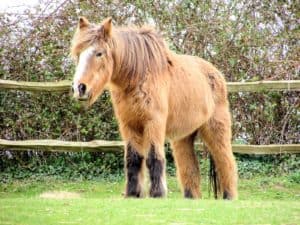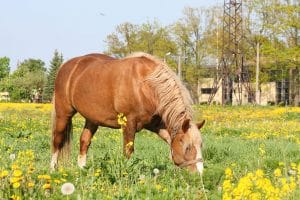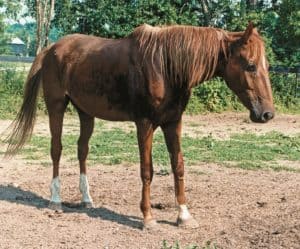
Product Review: Crypto Aero Feed and Supplements for Horses
This feed program appeared to improve one horse’s weight, skin, and coat and might have helped him avert gastric issues during a stressful situation.


This feed program appeared to improve one horse’s weight, skin, and coat and might have helped him avert gastric issues during a stressful situation.

AAEP Convention keynote speaker Cassandra Worthy explains how you can skillfully adapt and use this proficiency to your advantage in equine practice.

Dr. Luke Bass describes the unique joint changes that might be seen in horses with PPID and EMS.

Dr. Howland Mansfield describes signs a horse is ready to retire from riding, ranging from mild work intolerance to lameness.

Obesity could cause increased damage to your horse’s joints. Here’s why.

Dr. Luke Bass explains why injecting your horse’s joints too frequently might be harmful or reduce treatment efficacy.

Learn how to choose the right bedding, effectively clean your horse’s stall, and protect his airways from ammonia. Sponsored by Sweet PDZ.

Learn how to maintain your senior horse’s joints so he stays comfortable into his later years. Sponsored by American Regent Animal Health.

Horses with ID are at greater risk of developing laminitis. Knowing if your horse has a metabolic problem can help you prevent this painful condition.

Reacting quickly and correctly to an episode of HAL will give your horse a greater chance for future soundness.

When managing laminitic horses, making dietary changes is often necessary for the success of other treatment efforts.

Learn why horses with ID might be more likely to develop other conditions such as laminitis and what you and your vet can do to prevent and treat them.

Madeline Boast explains why you might need to provide supplements for horses on a forage-only diet to maintain a healthy equine gut microbiome.

Learn why some horses are more likely to develop EMS and associated laminitis and how to tell if your horse is at risk.

Dr. Robert Jacobs describes the potential effects of long-term NSAID use on the horse’s gut microbiome.

Dr. Robert Jacobs explains how variations in the equine gut microbiome might affect horse behavior.
Stay on top of the most recent Horse Health news with